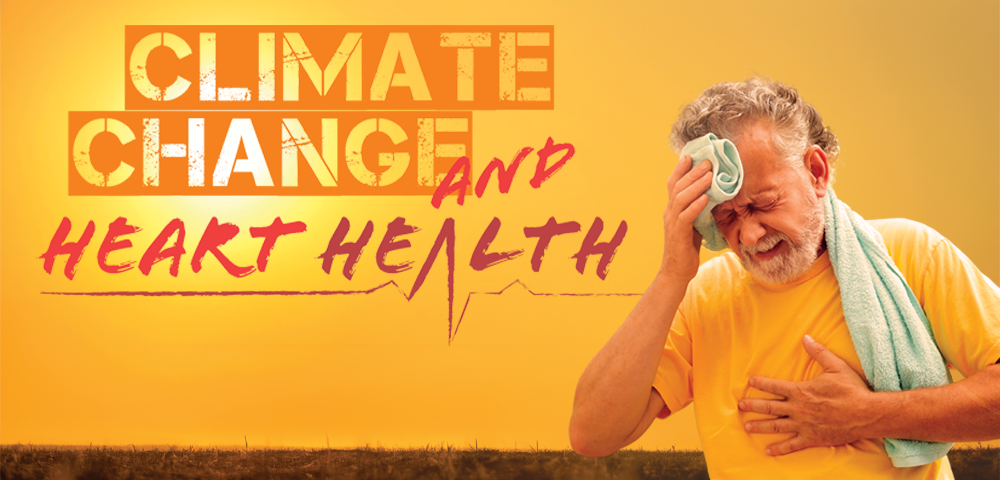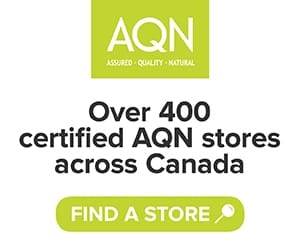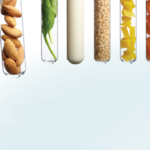
It is time to protect against the strain of rising global temperatures on our hearts.
Heat exposure is a risk factor for cardiovascular disease and related mortalities. As this can affect us all, it is time to protect against the strain of rising global temperatures on our hearts.
A HEATED SITUATION
Cardiovascular diseases are a leading cause of death worldwide, and treatment often focuses on managing risk factors such as diet, blood pressure, physical activity, and cholesterol and blood sugar levels. At present, less than 1% of cardiovascular-related deaths are a consequence of extreme heat. However, this is expected to increase significantly by the middle of this century. According to one study, if current policies to reduce greenhouse gas (GHG) emissions in the United States are successful, cardiovascular-related deaths from extreme heat are projected to increase by 162%. However, minimal efforts to reduce emissions could lead to a 233% increase in cardiovascular-related deaths.
HEAT HARMS THE HEART
Imagine how you feel on a very hot day. Red, warm skin and increased sweating are signs that your body is trying to adapt to the heat and maintain its core temperature. However, older individuals and people with underlying health conditions, such as heart disease and diabetes, may respond differently. When heat exceeds the body’s capacity to stay cool, increased demands are put on the cardiovascular system. Consequently, dehydration, heart rate disturbances, decreased blood pressure and coronary blood flow, and increased blood clot risk can occur. In fact, for every 1 °C increase in temperature, there is an associated increase in arrhythmias, heart attack, stroke, heart failure, and death.
WAYS TO PROTECT OUR HEARTS
Individual and community-based solutions are needed to protect our hearts from rising temperatures. Every person, especially individuals who are most vulnerable to extreme heat conditions, can benefit from including heart-healthy strategies in their daily lives.
Keep cool
Stay in air-conditioned spaces or use fans on hot days. Use window shading devices to help maintain the temperature of your home. Wear lightweight and loose clothing made from cotton or other breathable fabrics. In your communities, plant trees for shade and advocate for the availability of cooling centres.
Stay hydrated
Consistently drink water and consume water-rich fruits and vegetables (watermelon, strawberries, cucumbers). Limit caffeinated, sugary, and alcoholic drinks that are dehydrating.
Consume a heart-healthy diet
Such as the Mediterranean diet, which emphasizes various fruits and vegetables, healthy protein sources, whole grains, and minimally processed food and
refined sugars.
Incorporate heart-supportive supplements
Coenzyme Q10 (CoQ10) is an antioxidant highly concentrated in the heart and muscle tissues. Our ability to produce CoQ10 declines after age 20, and low levels can impact heart health. CoQ10 has been shown to support the prevention and treatment of cardiovascular diseases such as heart failure. Supplementation with CoQ10 daily has lowered total cholesterol levels, increased beneficial HDL cholesterol levels, and reduced cardiovascular disease risk.
Omega-3 fatty acids help maintain cardiovascular health by reducing triglycerides, inflammation, and blood clotting processes. Investigations have found that omega-3 fatty acids support the heart and reduce the risk of cardiovascular disease events. Low levels of omega-3 fatty acids have been detected among children and adults, and as the body cannot make these essential fats, increasing intake by consuming plant sources (chia and flax seeds), cold-water fish, and supplements such as algal and fish oil is highly recommended.
Magnesium is an essential mineral needed for more than 300 metabolic reactions. Magnesium deficiency is common because of factors such as increasing age, impaired absorption, and chronic stress. Low magnesium levels impact blood vessel constriction, blood pressure, and blood clotting. Support magnesium levels by consuming green leafy vegetables, whole grains, nuts and seeds, and easily absorbable magnesium supplements such as magnesium citrate and magnesium bisglycinate.
L-arginine is a conditionally essential amino acid critical in nitric oxide production. Nitric oxide helps relax smooth muscles, dilate blood vessels, and reduce the buildup of blood platelets to support cardiovascular health. L-arginine can help lower blood pressure and support heart function. L-arginine is found in legumes, chicken, nuts, seeds, and supplements.
Beyond these actions, never forget to take proactive measures to combat climate change to safeguard both the environment and your heart.














